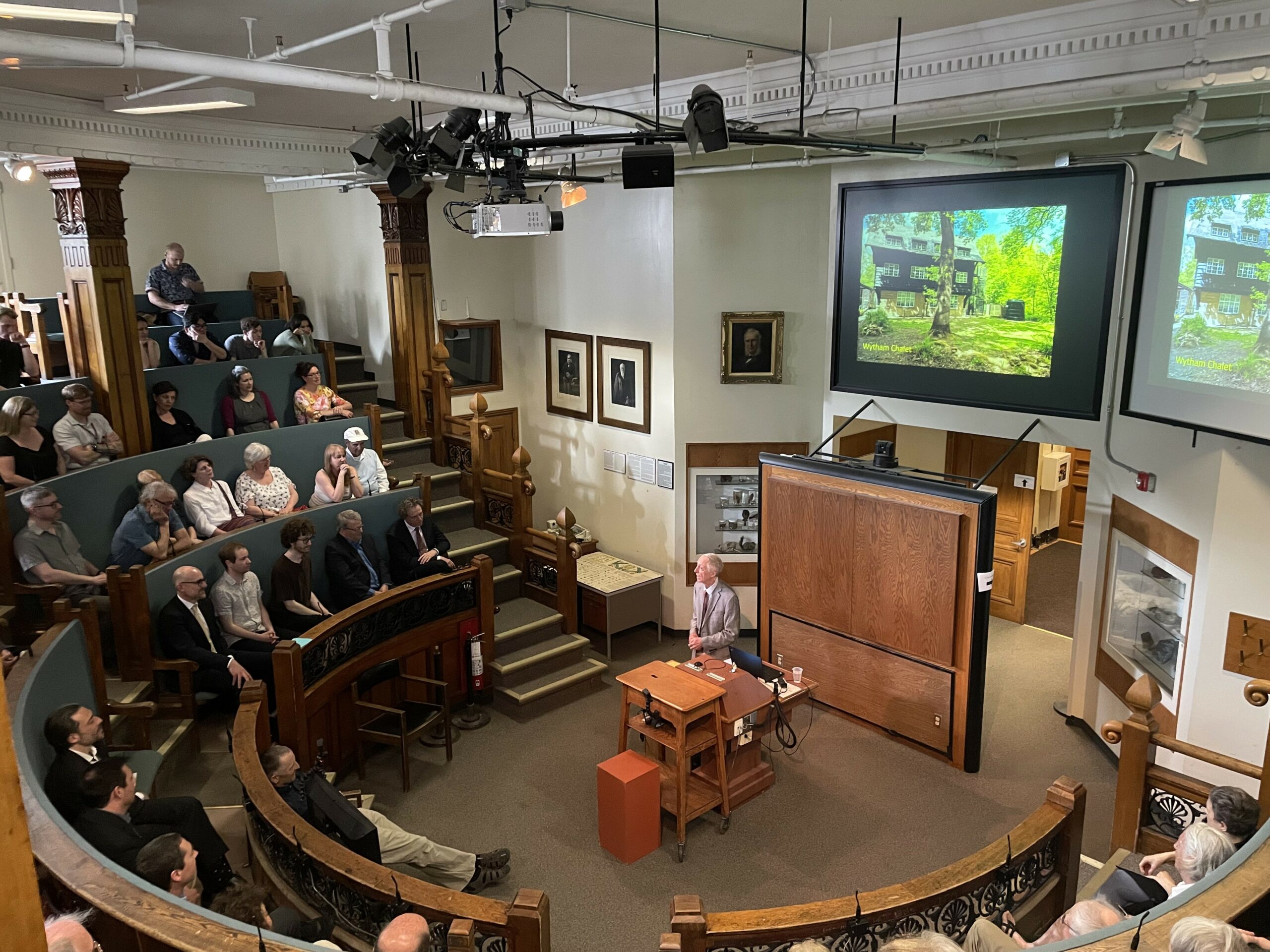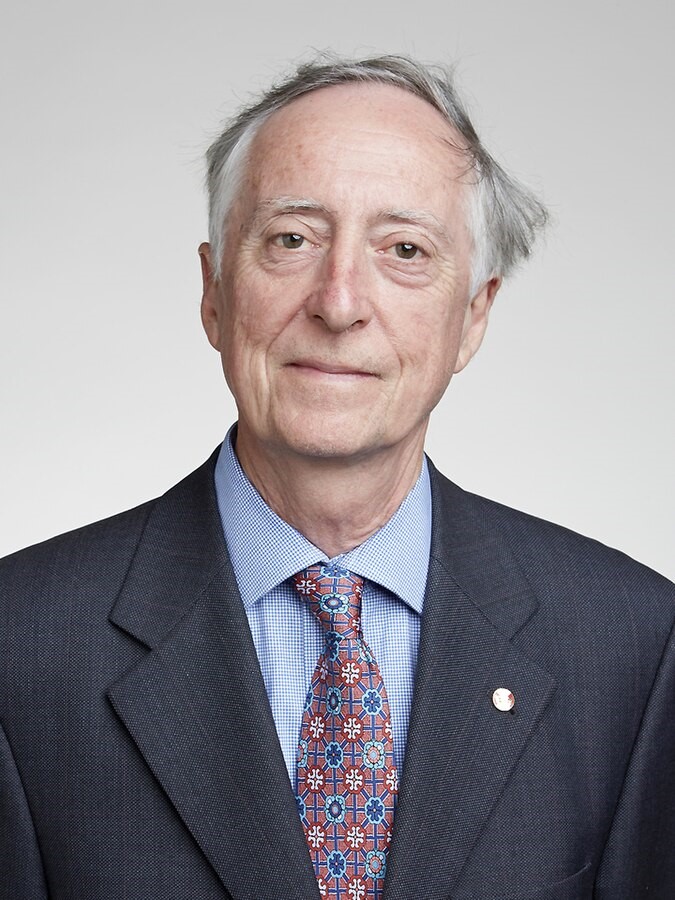
Just shy of 100 faculty, students, and friends packed the auditorium of the Redpath Museum on May 12 to celebrate the retirement of Graham Bell, James McGill Professor in the Department of Biology.
Bruce Lennox, Dean of Science, saluted Bell not only for his renown as an evolutionary experimentalist but also for his service to the scientific community, both at McGill and on a national level.
“Graham has made remarkable contributions to evolutionary biology and, indeed, when I first met him, he was introduced to me by a colleague as the ‘21st century’s Charles Darwin,’” Dean Lennox said.
“But he also has been a great citizen, which, in addition to his McGill roles, included serving as the President of the Royal Society of Canada.”
Gregor Fussmann, Chair of the Department of Biology, paid tribute to Bell’s unfailingly collegial approach to his work.
“Despite being a world leader in evolutionary biology, Graham was and is always open to scientific collaboration with his peers,” Fussmann said. “He is genuinely interested in the contributions and opinions of his colleagues. Many in the biology department, including myself, have enormously benefitted from and enjoyed working with him.”
Department of Biology “a complete joy to work with”

To mark the occasion, Bell delivered a “final seminar” in which he shared highlights and humorous anecdotes from a life dedicated to science, including his early career studying newts and fish, and his move from England to Canada.
But, true to Fussmann’s appraisal, Bell spent most of his talk dwelling not on the details of his own extensive career, but rather highlighting the work and findings of his colleagues and contemporaries who had defined his own learning journey. Interspersed among images from his research and fieldwork were pictures of colleagues, friends and family, with Bell making special mention of his wife and three sons, who were all present in the audience.
Burning as bright as ever, Bell’s passion for the evolutionary phenomena that occur all around us suffused his talk, which he delivered with the vitality that has defined the career of a teacher who seems to relish every word of his lectures.
“All the time, I’ve been teaching biology, publishing books,” he said simply, before revealing his plans to continue writing in between periods of taking care of an energetic, newly acquired pet dog.
“The Department of Biology has been a complete joy to work with,” he concluded.
The seminar was followed by a 5 à 7 in the Redpath Museum, where attendees took turns congratulating Bell on his career and exchanging stories.
A decorated career
Graham Bell first joined McGill as an assistant professor in 1978, before going on to serve as Director of the Redpath Museum from 1995 to 2005 and Chair of the Department of Biology from 2011 to 2016. Over his career, he authored six books and published more than 170 research papers.
Bell’s numerous career honours include the Queen Elizabeth II Diamond Jubilee Medal, the Prix du Québec (prix Marie-Victorin), the Léo-Pariseau Prize, the NSERC Award of Excellence, and the Flavelle Medal of the Royal Society of Canada. He served as President of the Royal Society of Canada from 2013 to 2015 and was named a Fellow of the Royal Society of London in 2016. Bell also played a founding role in the creation of the Canadian Society for Ecology and Evolution, serving as its President in 2006.

An upstanding citizen and highly respected scholar.